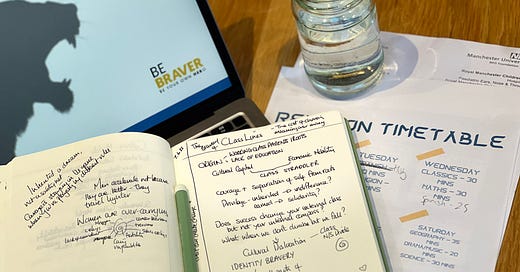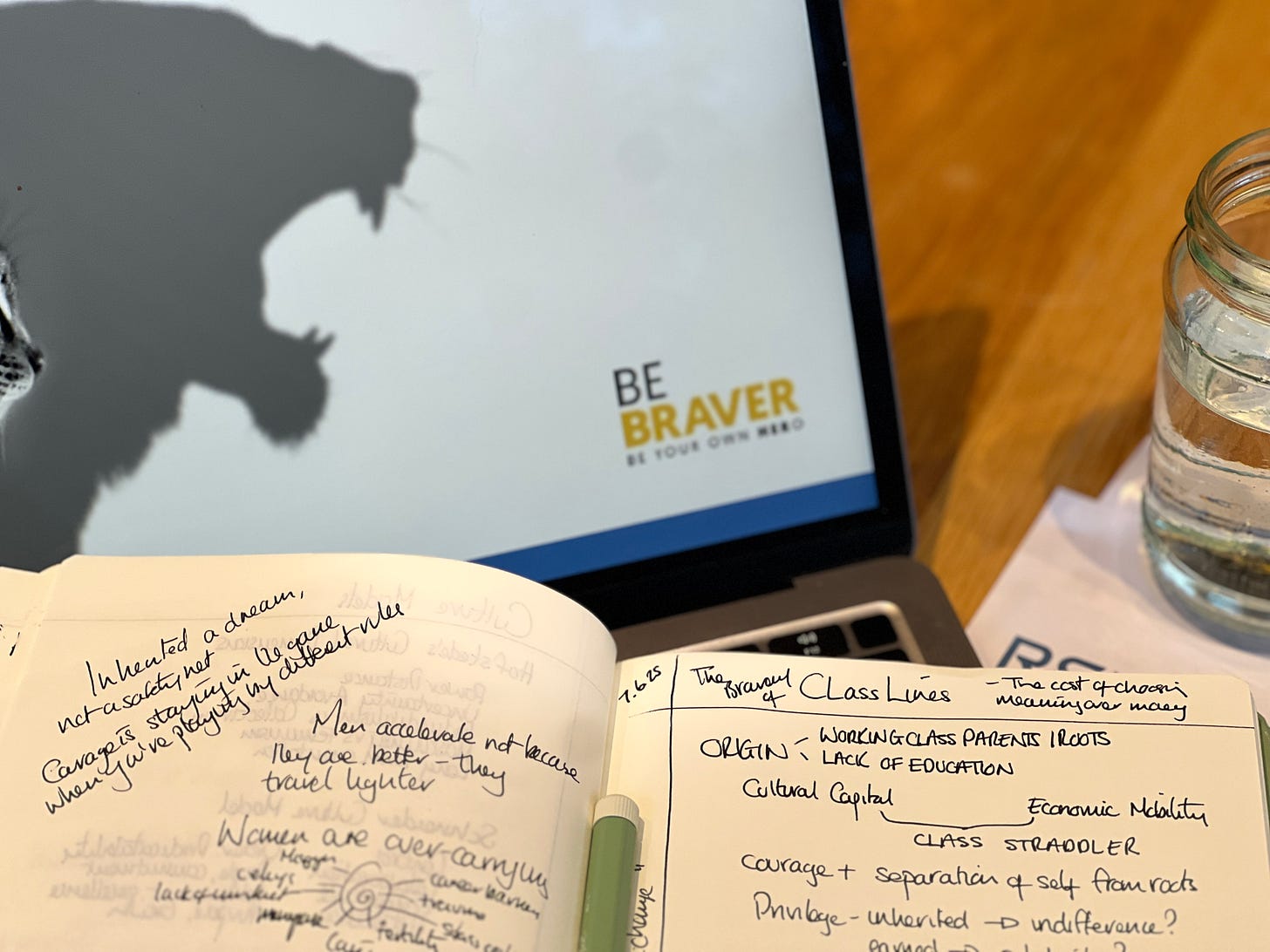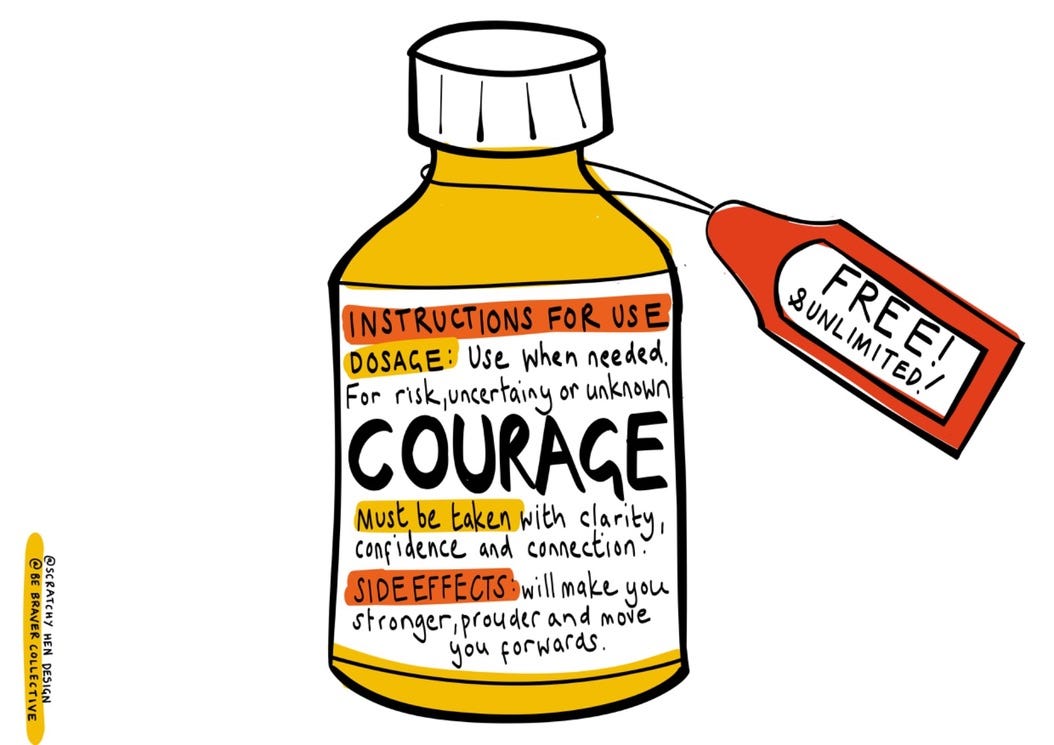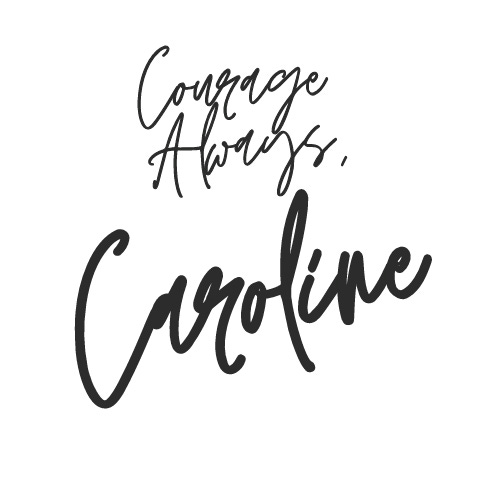What it costs to choose meaning over money - and why honesty is a radical act.
Lately, I've been seeing a pattern in the only online space I visit other than Substack: LinkedIn.
You might at this stage, without further reading, think, 'What do you expect when you are visiting the Promotion Platform,' as I now prefer to think of it One arguably needs the constitution of an ox to scroll through there without feeling inferior, lacking and not successful enough.
One post in particular stopped me cold. I stared at my screen for a long time.
The indivdiual may know of my work. They may not. That in itself doesn't matter. What mattered was the feeling - like watching someone sail past in a boat, while I was while I was still in the water, hammering away at my own hull with whatever tools I could find.
I closed my laptop. Made coffee. Sat with the sting.
That afternoon, I picked up my son from school and listened to him enthuse about his day. I worked late on client business, then we sat down for dinner to unpack the lessons of exam week. Later, I returned to my notebook and explored some more.
I'm still here. Still writing. Still pondering am I fool for trying. Questioning whether fortune really does infact favour the brave.
The Ladder That Disappeared
I was born in 1976 in the North of England. My dad left school at 16 with no qualifications and got a job working in a bank. Never conventional but always an effective thinker - when my grandma asked him if any new neighbours had moved in, he chucked a brick through the window to see if anyone ran out.
He had no formal education but he understood something about ambition. Northern grit, hard work, and determination. He made money, moved us into better areas and built businesses - not just one, but several. He travelled the world. I became the first in my family to go to university thanks to the opportunities he was able to provide. I’ve travelled. Worked abroad. Worked mostly in London until I brought by northern accent back to Manchester.
From the outside, it looked like social mobility in action. My Dad climbed a ladder, which meant I had a leg up when I set out on my adult life.
But something happened while I was climbing that ladder. The economy shifted. Globalisation changed the rules. COVID hit. The cost of everything exploded. The ladder I'd been climbing quietly disappeared behind me.
Now I'm 48, a single mother, living in a strange middle space. I have the cultural markers of middle-class success - the education, the vocabulary, the ability to navigate professional spaces. But I don't have the financial cushion. I don't have family wealth. I don't have the networks that come with generational wealth.
I inherited a dream, but not a safety net.
These days, I live among circles of incredible wealth - earned and inherited. I’m surrounded by those like me who feel like they're slipping down the ladder, those hanging on to their rung for dear life, and those starting where my dad did.
The Cost of Choosing Meaning
Seven years ago, I left a well-paying corporate role. Not because I was burned out (though I was). Not because I wanted to "follow my passion" (though I did). I left because the person I would become in that job was someone I didn't want my son to know. It was incompatible with the parent I wanted him to have.
I knew the behaviours, practices, and commitments I believed were not only invaluable but essential for raising stable, confident, brave, and curious humans. I made choices that would best allow this to succeed.
My greatest pride will always be my son, who is probably my greatest role model these days. I will never have regret there. I chose work that let me be present: coaching, writing, research. Work that felt like it mattered. Work that used my brain and my heart in equal measure.
Some days, it costs more than I expected. That's the risk I took. But the consequences of the decisions I've made aren't always directly attributable to the decision itself. We live in systems and structures outside our control - some we can predict, many we can't. That same unpredictability can give or it can take. But for women, it tends to take more than it gives.
I watch men I went to school with post about their promotions, business sales, investments, shares, even retirement countdown. Their success is real and valid. But they didn't spend years in therapy learning how to belong in spaces that weren't built for them. They didn't have to rewire their nervous system just to function in professional environments. They got to climb. I had to rebuild myself just to stand.
Their path was a straight line. Mine a spiral - through single parenthood and hustling through the messy work of building something from nothing.
Both paths are valid. But only one gets celebrated.
The Silent Majority
Every week, I talk to women who feel this tension:
The marketing director who left her six-figure job to start a consultancy, then panicked when her first client was late on payment.
The first-generation graduate carrying student debt and her parents' expectations in equal measure.
The single mother building her business, exhausted at 1 AM, delivering completed work and wondering where next month's income will come from after everyone else is asleep, questioning who will pick up the kids when she needs to go to a new business meeting.
They're not envious of others' success. They're exhausted from holding it all alone. They've done everything right, and it's still not enough.
They're not broken. The system is broken.
Success in the middle classes is built on silence. Don't talk about money. Don't admit you're struggling. Don't let anyone see a sniff of hardship. It's unbecoming.
Breaking that silence feels dangerous. It feels like admitting you've failed.
But maybe it's the bravest thing we can do.
Using My Own Medicine - The Be Braver Mindset
When I saw that particular post, I felt everything I tell my clients not to feel. Resentment. Comparison. Frustration. Envy. Rage. Pointlessness. The urge to quit.
It felt like a tipping point that had triggered something I hadn't been able to articulate, coinciding with the same day I had a very uplifting yet anger-fuelled conversation with an HR leader where we were tackling the challenges of social mobility.
I could have wallowed. I could have let it derail me. Instead, I decided to practice what I teach and coach.
The thing about my Be Braver framework - my approach to transforming courage from internal feeling to visible action - is it works. It's brilliant at times like this. It helps me know where to give myself a kick up the backside, what to put down, what to use as fuel - where accountability sits and how to choose courage in the discomfort. So it moves me forwards. So I can continue to be limitless not limited.
So I did what I teach: I applied the Be Braver mindset to my own triggered response.
Feel it: I let myself feel the full sting of it. The jealousy, the exhaustion, the "what's the point?" despair. I didn't try to rationalise it away or shame myself for having those feelings. Discount myself. I sat with them instead of running from them. I listened for their messages with acceptance and curiosity knowing they carried something of value.
Name it: Then I applied everything I’ve learned and know to be true. This wasn't really about the people in Linked In or their work. This was about power and pace and visibility. About the different speeds at which we get to move through the world. About the networks some people inherit and others have to build from scratch. This was about the price we pay to belong in systems we weren't born into.
For me, I can point to 10 years of study, research and work in gender equity. I can name with confidence the fact that I know women are outperforming men in education, emotional intelligence, and ethical leadership.
But the system rewards speed over depth, confidence over care, and presence over responsibility. Men and those with privilege are not accelerating because they're better.
They're accelerating because they're travel lighter. Women aren’t underperforming.
They’re over-carrying. Men just travel lighter - fewer caregiving roles, fewer trauma loads, more social capital.
Systems block women's acceleration right at the start, regardless of performance. Women are promoted based on past performance. Men are promoted based on future potential. Confidence is rewarded in men; caution is penalised in women. Investors favour men over women. Having children amplifies the career divide. I myself was made redundant when I was pregnant.
Care work, emotional labour, and community contribution often go unpaid and unmeasured. Women disproportionately carry trauma (gender-based violence, childhood adversity, care burdens). We don't talk enough or at all about the massive impact this has. We are working at leaving it behind. We've been working harder, carrying more and trying to catch up. Working twice as hard to get half as far. All this is fact, not feeling.
Reclaim it: The experience of being in systems that keep me in the water without the tools and resources I need to launch my own sailboat - that's exactly what differentiates my work and, one day, my book. It makes it all the more powerful.
Perhaps I'm destined for a different audience anyway. Academia seems like another institution of power and privilege - the cost and time of studying, earning credentials, and navigating peer review are only accessible if you can afford them. Without family wealth or institutional backing, that world remains out of reach at the stage in life when I most want to access it. But perhaps this exclusion is exactly what fuels my writing - forcing me to find my own voice outside traditional gatekeepers.
Every client who has ever chosen to work with me and practiced a Be Braver mindset and advocated for being a practitioner; every story of courage shared with me as a result of having done my programme – this is not only them transforming their quiet courage to visible courage. It's creating change and challenge to the culture, systems and structures we operate in, to start levelling up the speed of travel for those who feel like they are swimming against not with the current.
The system's grip on how we define success runs deep. Maybe the discomfort I need to sit with is the realisation that this condition is so strong that whilst I am making decisions which rebel against a system I want to change, I am still measuring success by the criteria it operates from.
My lens on the world is real and intersectional. I offer depth, emotional intelligence and stay true to my values. I'm commended for my authenticity. But another uncomfortable truth, for another post perhaps, is that society doesn't really reward authenticity anyway.
I think about my shallow network of power circles - which I once thought was a reflection of my unlikability and being rejected. Now I know it's because I'm too deep, and that's okay. Often what gets rewarded is mimicry, not authenticity - the ability to mirror existing power structures rather than challenge them. To speak their language, adopt their mannerisms, play by their unspoken rules. True authenticity disrupts the status quo, and disruption makes people uncomfortable.
Courage is staying in the game when you're playing by different rules.
The Bravery of Staying
I don't write from the peak of success -by society's understanding of success, and in truth, my own. I write from the trenches of building something that matters. My courage isn't in arrival - it's in remaining.
Remaining aligned with my values when it would be easier to compromise.
Remaining real when polish would get more attention.
Remaining soft in a system that rewards sharpness.
Those others, men particularly, with their platforms may publish faster, louder, with more backing. But my work is rooted in lived truth and research. In the years I spent learning how to belong, in the nights and stolen hours I spend choosing substance over speed.
I'm not resentful. I'm tired from holding it all alone.
I'm not bitter. I'm under-recognised.
I'm not failing. I'm forging a path no one handed to me.
And tomorrow, I'll write again.
To Anyone Who Feels Behind
If you're reading this and feel like you're falling behind, please know: You are not failing. You are not behind. You are building something different - something that has soul.
You may well be in the water, hammering away. But you are creating something beautiful - something that's yours. The losses may hurt, but the wins are yours and yours alone.
The game is rigged, but we're still playing. And that is the greatest bravery of all.
If this piece has spoken something you know to be true, share it. Courage inspires courage. When we recognise the quiet bravery in those around us, we make it - and our own - visible. That's how change happens.
If it made you uncomfortable, sit with that feeling. Just as I did. Have the courage to ask yourself what that discomfort reveals - not just about your own responses, but about the systems we're all living in.
Sometimes we're responsible for things not because they're our fault, but because we're the only ones who can change them.
If you’re a woman forging your own spiral path - through leadership, entrepreneurship, class, creativity,- I’d love to hear your story.
Whether you’re parenting alone, building without a safety net, navigating career and care solo, or simply carrying it all quietly - I see you.
You’re warmly invited to:
• Speak to me privately and share what this stirred in you.
• Join a live Substack conversation.
• Or record an episode with me for the Quiet Courage podcast.
However you show up, know this: your story matters. Your voice belongs.
Until the next time, stay brave, keep on keeping on,
With special thanks to









I also find myself sitting with uncomfortable feelings when I visit LinkedIn for similar reasons. People retiring young because they can which is something I can’t imagine. How many men vs women I started my career with who are partner/director level when we were all of equal intelligence and ability when we started. I know I have pulled back from pushing myself up ladders and I have less to say on that platform and I have to take care visiting there.
Go you! Great piece.